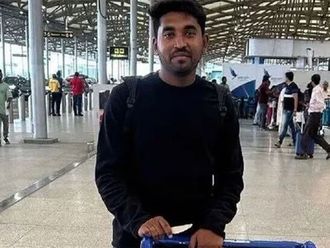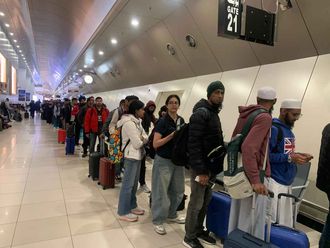Riyadh: Interpol has issued red notices across 188 member states for 47 wanted Saudis aged between 18 and 40.
The latest list of 47 wanted terrorists was announced on Sunday by Saudi Arabia which said that they are hiding in Yemen, Pakistan and Afghanistan and Iraq.
Posted on its website, the Interpol’s notice carries details of the wanted terror suspects.
Interpol Secretary-General Ronald Noble said that Saudi Arabia’s request for red notices to be issued for a large number of terror suspects has proven once again that fighting terror should be at the domestic and international arenas.
He added that the issuance of these notices demonstrates that the Interpol’s global law enforcement network will maintain pressure on a large number of terror suspects who are at large and who continue to represent potentially significant threat to public safety.
Meanwhile the Saudi Interior Ministry has ruled out any connection between the Kingdom’s school textbooks and deviation or terrorism.
Dr. Abdul Rahman A Hadlaq, director of intellectual security department at the interior ministry, said that Saudi universities have conducted more than 50 studies on intellectual security, adding that all these studies have proven that school curricula had nothing to do with intellectual deviation or terrorism.
A Hadlaq made these remarks while speaking during a forum under the theme: national strategy for intellectual security, held in Riyadh on Tuesday. He pointed out that most of those influenced by intellectual deviation are young people between 18 and 25 years who did not complete their studies. He called for creating institutions to take care of youth.
For his part, Dr. Khaled Al Darees, supervisor of Prince Naif intellectual security chair, said the national strategy for intellectual security stipulates that those who voluntarily change their deviated attitudes and behaviours would not be accounted for previous acts.
“The strategy underlined the importance of correcting wrong concepts like the concepts of Jihad, obeying the ruler as well as enhancing the values of homeland affiliation, demonstrating citizen’s rights and the preservation of the Kingdom’s unity and security,” he noted.
He pointed out that reliance will be laid significantly on the religious establishment to implement the national strategy programmes through mosque preachers, holy Quran memorisation schools and other things. He added that the religious establishment has been involved in the preparation of this strategy.
He cited some departments which he said took part in the preparation process, including the Ministry of Islamic Affairs, the Senior Ulema (Muslim scholars) Commission, the Ministry of Justice, the Supreme Judiciary Council and the Department for the Promotion of Virtue and Prevention of Vice.












